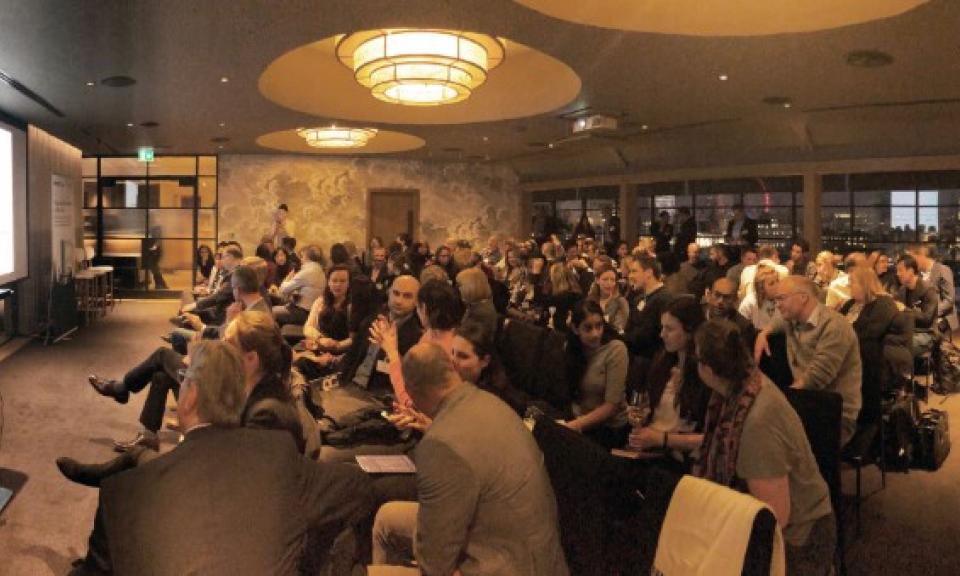
Published
Blog type
Over 100 HR directors and senior leaders shared their experiences of coaching at Imperial Business in the City: Coaching as a Leadership Style.
The conversation was led by three speakers with decades of experience of coaching and leadership development: Frans Campher, CEO of leadership development consultancy Integral Leadership Dynamics; Brian Murphy, formerly Head of Learning and Leadership Development for Citi in EMEA; and Professor Nelson Phillips, Abu Dhabi Chamber Chair in Innovation and Strategy at Imperial Business School.
Here are three takeaways from the evening’s conversation:
1. Leaders who coach increase their personal effectiveness and have more motivated staff
Frans Campher argued that to be successful leaders must ‘expand’ beyond middle management tasks like problem-solving and organising, and multiply their impact by creating the context for others to succeed.
Coaching can play a key role in this transition. By empowering others through coaching a leader can unlock the time they need to be strategic, clarify their vision, and think about the longer term.
Moreover, as Imperial’s Professor Nelson Phillips noted, “leaders who develop people are leaders people want to follow”.
2. Coaching isn’t a cure-all
However, Campher cautioned that coaching is not a panacea. Coaching must happen at the right time, in the right context, and the recipient must be receptive. The ability to assess people and situations and judge what kind of conversation is appropriate is a key leadership quality.
For example, if a staff member is resistant to change or not willing to engage with a process, then coaching is not appropriate for them. Similarly, a crisis situation may demand a ‘command-and-control’ leadership style.
3. Coaching delivers the best returns in these three areas
Brian Murphy identified three areas where coaching can be deployed most effectively within organisations:
To support leaders and managers through transitions
For Murphy, leaders are most open to coaching when they are going through an important change like taking on a new role or major project.
To create a high-performance culture
Coaching conversations can be a highly effective means of driving performance in organisations. Murphy shared how Citi encouraged managers to structure their one-to-one conversations with staff around three questions:
- What have you done since we last met?
- What have you learnt from these activities?
- What would you do differently next time?
Adopting a coaching approach like this is a cost-effective and simple way to promote accountability and continuous improvement.
To build leadership capability
In Murphy’s experience, coaching is one of the most effective leadership development tools money can buy, with returns on investment often seven-fold.
Frans Campher and Nelson Phillips are the programme co-directors of our executive education programme Leadership in a Technology Driven World.
Building on Imperial’s unique positioning as a leader in both technology and business research and education, this programme gives executives stepping up to senior level management positions the tools to lead in the rapidly changing technological context of modern business.
Frans Campher and Nelson Phillips are the programme co-directors of our executive education programme Leadership in a Technology Driven World. Building on Imperial’s unique positioning as a leader in both technology and business research and education, t
